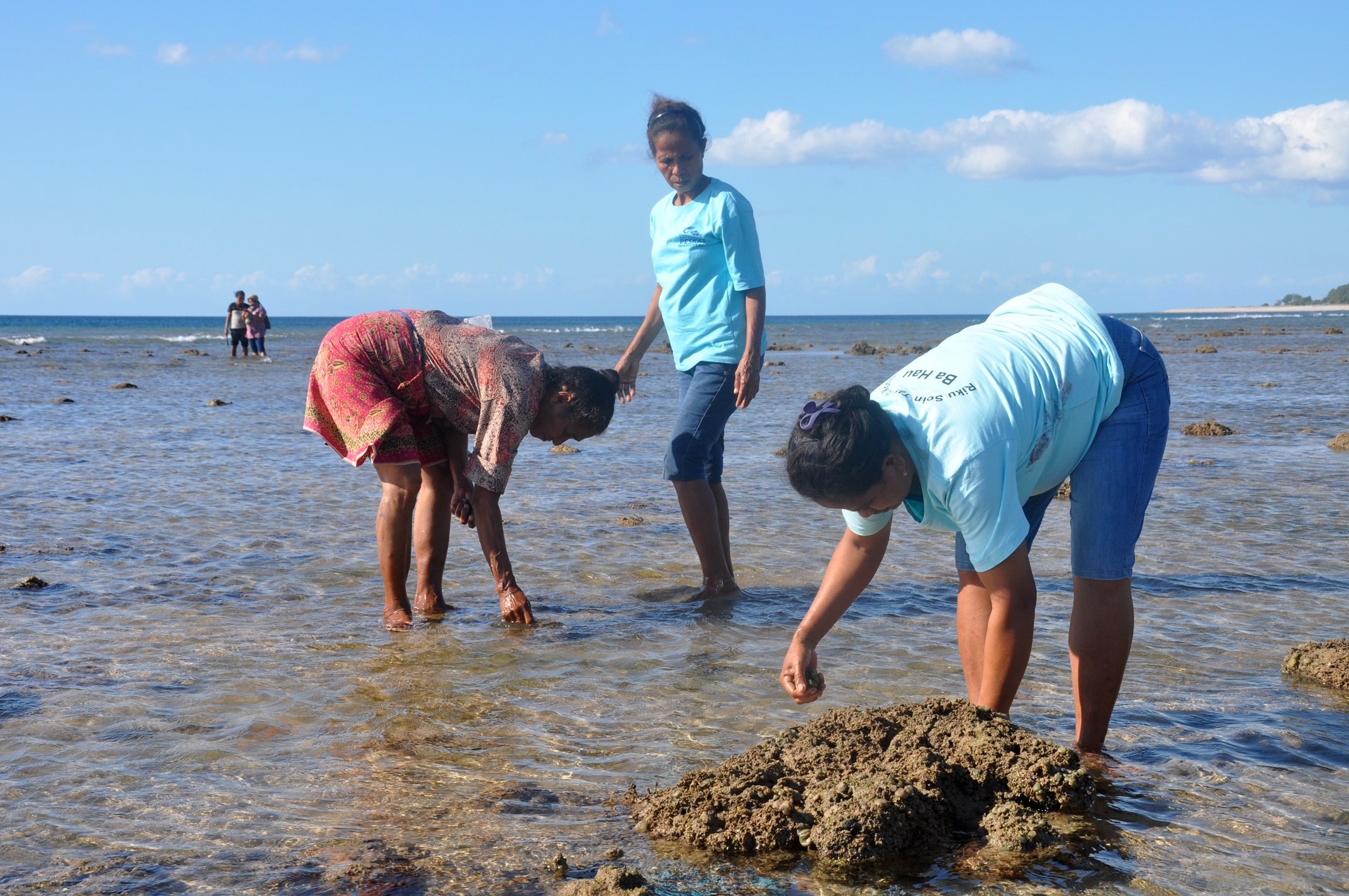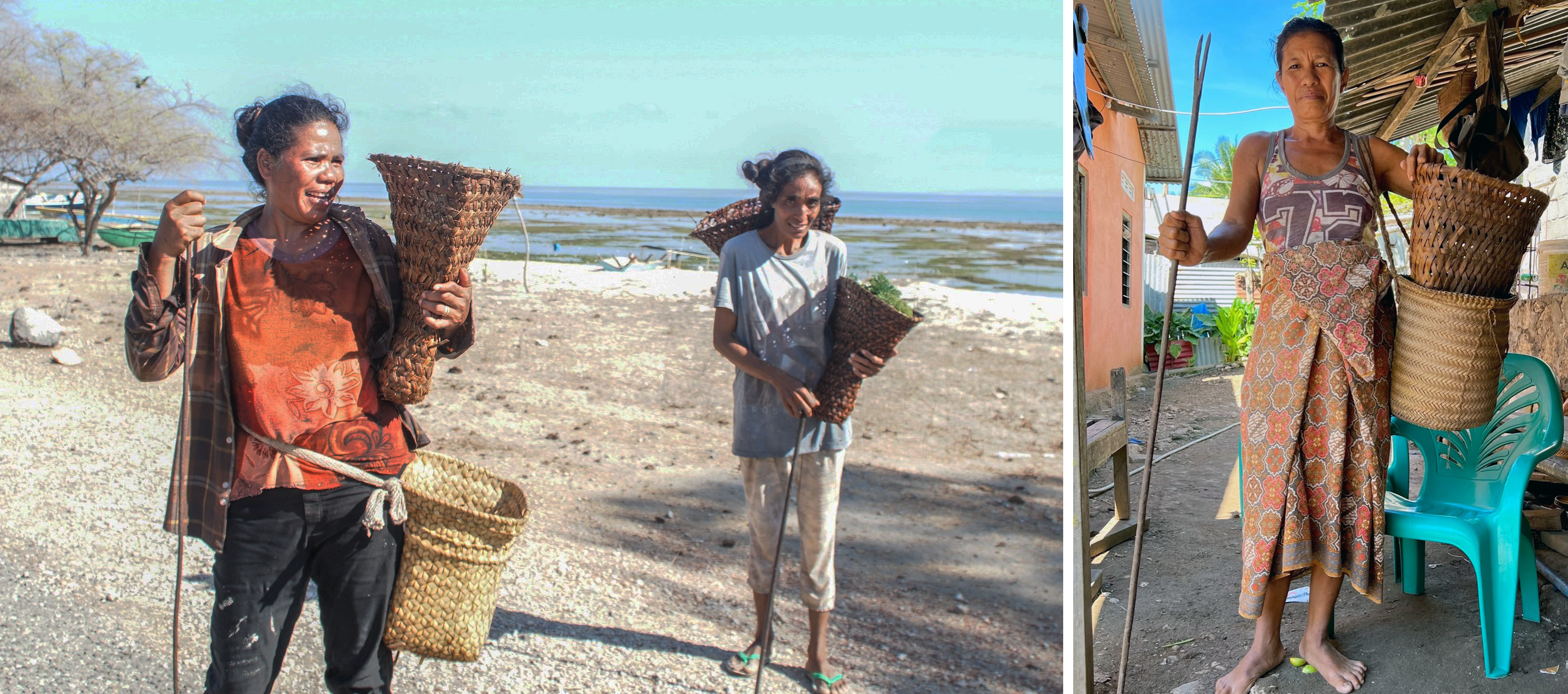

Recognising women’s contribution to fisheries through gleaning
June 21, 2022

We have no doubt that involving young Australians in international agriculture and agriculture for development has meaningful and beneficial outcomes for food and nutrition security, for the students and for Australian agriculture. This is again the focus of our awareness raising in the third year of our ACIAR supported NextGen project.
This year we will hear from NextGen’rs who are involved in the work that has been highlighted in our seven teacher modules for secondary students around Australia.
Our fifth blog in our NextGen series is from Gianna Bonis Profumo, a Post-Doctoral Fellow specialising in Food Security, Nutrition, Gender with WorldFish in Timor-Leste. Gianna’s work focuses on Research for Development, exploring food systems resilience and gender in agriculture issues, as well as dietary practices and nutrition-sensitive agriculture in low- and middle-income countries. She is passionate about food and nutrition security, and aim to support women, indigenous peoples, and smallholder farmers to ensure nutritious foods are accessible and affordable to vulnerable groups. As a multilingual person with a social sciences background, she aims to work on local solutions for global problems. Her blog focuses on our teaching module Gender dimensions in agriculture.
Fisheries, a sub-sector of agriculture, is seen as men’s business in Timor-Leste. This neighbour to Australia is a half-island developing nation. Men in coastal areas often go out in wooden canoes to catch fish using nets and other artisanal equipment. Women’s role is associated with fish processing and its preparation into simple yet tasty recipes. However, women also participate in fisheries through a seasonal practice called gleaning, which is the manual collection of fish and seafood in shallow areas that get exposed during low tides. Gleaning catches include small fish, different molluscs like octopus or cockles, and crustaceans like crabs or lobsters, that are used for consumption, sale or both. Yet, this fishery is overlooked despite its contribution to the diets and income of seaside households.

The lack of recognition of women’s role in gleaning fisheries affects their social status, meaning that this activity is not as valued by society as fishing using boats. Moreover, their invisibility is translated into what is called data-blindness, where data is not collected on women’s fishing efforts, as these are not seen as important. And we know that which does not get measured, does not get managed. While information on fish production from boats is regularly collected now in Timor-Leste, data on gleaning catches are not. This means that gleaning is not part of the national policies that set the objectives for the development of the fisheries sector. The absence of information on gleaning production also excludes women from management decisions on the resources that they depend on. Awareness of this fishery is one way to include women’s voices and consideration of their activities in the decisions of resource management.
The Nutrition-Sensitive Fisheries Management project has the objective to identify the livelihood and nutrition benefits of fisheries in Timor-Leste, which includes understanding the contribution of gleaning. We will be working with women in coastal communities where gleaning is practiced to collect detailed data on the variety of species landed, their consumption among women and children, and document how through management practices, fisheries projects and policies can be more inclusive and support nutrition outcomes. By generating evidence on women’s roles in fisheries we aim to help address the social, information and policy barriers that undervalue their work.
This project is implemented by WorldFish and funded by the Australian Centre for International Agricultural Research (ACIAR).




 0
0